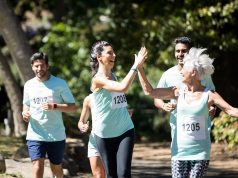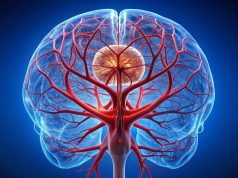Persisting symptoms lasting longer than typical time frame may be due to interaction of postinjury symptoms with biopsychosocial factors
WEDNESDAY, June 16, 2021 (HealthDay News) — Strict rest may slow recovery and prolong symptoms after sports-related concussion (SRC), according to a consensus statement published online June 15 in the British Journal of Sports Medicine.
Stanley Herring, M.D., from the University of Washington in Seattle, and colleagues developed a Team Physician Consensus Conference statement to address selected issues on SRC relevant to practicing team physicians.
According to the statement, due to nonspecific symptoms and lack of objective biomarkers, the diagnosis of SRC remains a challenge. SRC is treatable, with the number and severity of initial symptom burden being the best predictors for duration of recovery. Current evidence indicates that strict rest following SRC may slow recovery and increase the likelihood of prolonged symptoms. The typical time frame for recovery for most athletes with SRC is within two weeks and up to four weeks for adults and children, respectively. Persisting symptoms after SRC (PSaSRC) are defined as symptoms lasting longer than the typical time frame; the underlying pathophysiology is not fully understood. PSaSRC are thought not to be caused by a single pathologic process, but by an interaction of postinjury symptoms, complicated by preexisting, coexisting, and/or resulting biopsychosocial factors. A multidisciplinary approach is often required for management of disabling PSaSRC.
“Most athletes who have been concussed will get better, and will be able to return to play,” a coauthor said in a statement. “Athletes should take comfort in knowing that there are treatments out there, and there are steps they can take to aid their own recovery.”
Several authors disclosed financial ties to the sports and pharmaceutical industries.
Copyright © 2021 HealthDay. All rights reserved.








